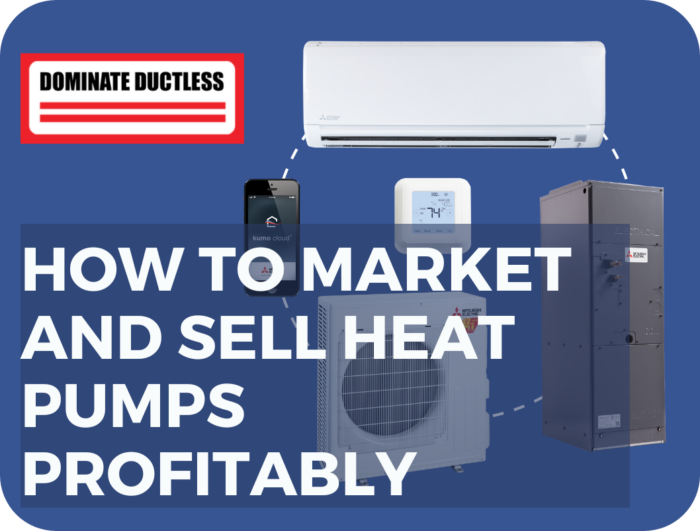
The Heat Pump market in the United States was almost $12 billion last year and is forecast to experience a compound annual growth rate of almost 10% for the rest of this decade.
Heat pumps are highly efficient and offer numerous benefits to consumers. However, successfully marketing and selling heat pumps requires strategic planning and effective implementation. In this article, we will explore key strategies and tactics to market and sell heat pumps profitably.
To effectively market and sell heat pumps, it is crucial to have a clear understanding of the target market. This includes identifying the specific customer segments and their needs. Conduct thorough market research to gain insights into factors such as demographics, geographic location, and purchasing behavior.
Energy Efficiency: Emphasize the high energy efficiency ratings of heat pumps, which can significantly reduce energy consumption and save costs for customers.
Advanced Technology: Highlight the innovative features and technologies incorporated in the heat pumps, such as smart controls, Wi-Fi connectivity, and zoning capabilities, which provide enhanced comfort and convenience.
Environmental Friendliness: Highlight the eco-friendly nature of heat pumps, which utilize renewable energy sources and have low greenhouse gas emissions.
Noise Reduction: Promote the quiet operation of the heat pumps, ensuring minimal disturbance for homeowners.
All-Weather Performance: Emphasize the ability of heat pumps to provide both heating and cooling functions, making them suitable for year-round comfort.
Collaborate with Contractors: Forge partnerships with HVAC contractors who can recommend and install heat pumps. Offer training and support to contractors to ensure they are knowledgeable about the product.
Establish Dealer Networks: Develop a network of authorized dealers who can actively promote and sell heat pumps in their respective regions. Provide incentives, marketing materials, and ongoing support to dealers.
Industry Associations and Trade Shows: Participate in relevant industry associations and trade shows to network with professionals, generate leads, and increase brand visibility.
Prompt Response: Ensure timely response to customer inquiries and provide accurate information to address their concerns.
After-Sales Support: Offer comprehensive after-sales support, including maintenance services, warranty coverage, and troubleshooting assistance, to build long-term customer relationships.
Training Programs: Conduct training programs for customers and dealers to educate them about the optimal use and maintenance of heat pumps.
Effectively marketing and selling heat pumps profitably requires a thorough understanding of the target market, highlighting product features and benefits, establishing a strong online presence, building strong partnerships, and providing exceptional customer service.
By implementing these strategies and tactics, contractors can increase brand visibility, generate leads, and ultimately boost sales and profitability in the competitive HVAC market.